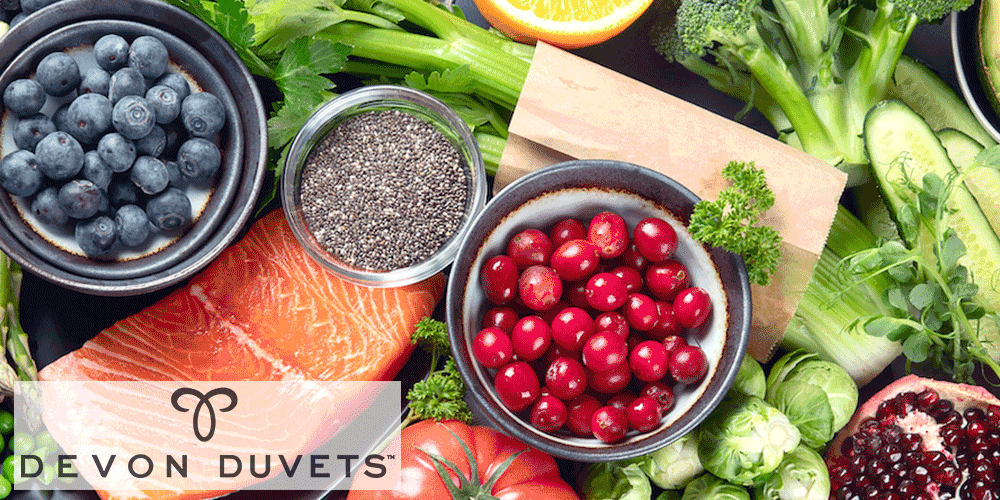Diet tweaks that can help you to sleep better

Wool Wellbeing Tip #2: Foods that can help you to sleep better
It’s amazing to think that certain types of food and drink can help you to sleep better – but it’s true! Most of us know that chocolate and other sugary foods are more likely to rev you up, and even more so if you are tucking into them before bedtime. Spicy, fatty and acidic food (such as curry, onions, pickles and strongly flavoured crisps) eaten late at night can also cause sleep issues.
Caffeine is a well-known stimulant, so if you tend to drink a lot of tea, coffee or energy drinks throughout the day and into the evening, then this can impact on your sleep. It can also increase your blood pressure, which is known to cause problems with sleeping. This also applies to some brands of ‘diet’ drinks, which contain as much caffeine as their regular sugar-loaded counterparts! It’s also worth bearing in mind that if you’re also going through the Peri Menopause or Menopause, these types of food and drink - especially those with caffeine - can exacerbate ‘night sweats’.
Now for the good news! We’ve put together some suggested diet tweaks that can help to ease your body into a more peaceful sleep.
High Protein Foods: these contain tryptophan, an amino acid that’s essential for the production of serotonin, which triggers the production of the ‘sleep hormone’ melatonin. Tryptophan is found in chicken, fish, beans and oats.
Fermented Foods: these contain GABA (gamma aminobutyric acid – phew that’s a long one!), which soothes the central nervous system, lowers blood pressure and slows brain waves – all of which will help you to relax and sleep. GABA can be found in pickled vegetables, such as kimchi, and also in GABA Oolong teas.
Magnesium: studies have shown that magnesium can help increase the amount of time we stay asleep. It can also weaken the frequency and intensity of hot flushes. Boost your magnesium levels with dark green leafy vegetables, such as kale and spinach.
Nuts: these are a rich source of protein (therefore tryptophan), unsaturated fats and magnesium. Walnuts are extra good as they also contain a high amount of glutamate (another amino acid), which helps us to produce GABA in our brains.
Herbal Teas: the vast majority of these are caffeine free, and they are also high in antioxidants, so can boost your immune system. Many contain herbs that affect specific neurotransmitters to help you relax and boost sleep quality, so try swapping tea, coffee and energy drinks with herbal teas four to six hours ahead of bedtime. Health food shops generally sell a good range of herbal teas that can help with sleep but if you are pregnant then please check with your doctor first if there are any you should avoid.
A final word... on chocolate: if you can’t beat those ‘must have’ evening chocolate cravings (you’re not alone - there are lots of us that have those!), then there are lots of delicious caffeine free options out there – and some that are refined sugar free, dairy free, gluten free and vegan friendly.
Once you’re ready for bed, bear in mind that you will also have a more restful night if you are tucked up in bedding that is made from natural fibres. These are breathable and will help to regulate your body’s core temperature. All our duvets are made using natural fibres, including beautiful 100% British wool, encased in high quality (260 thread count) cotton, and individually handcrafted by our seamstresses here in Devon. For more information on our natural duvets, including wool, alpaca and our 100% plant-based Botanic range, just get in touch with the team and we’ll be happy to help.
Ref: www.sleepfoundation.org, www.healthline.com, Good Housekeeping


